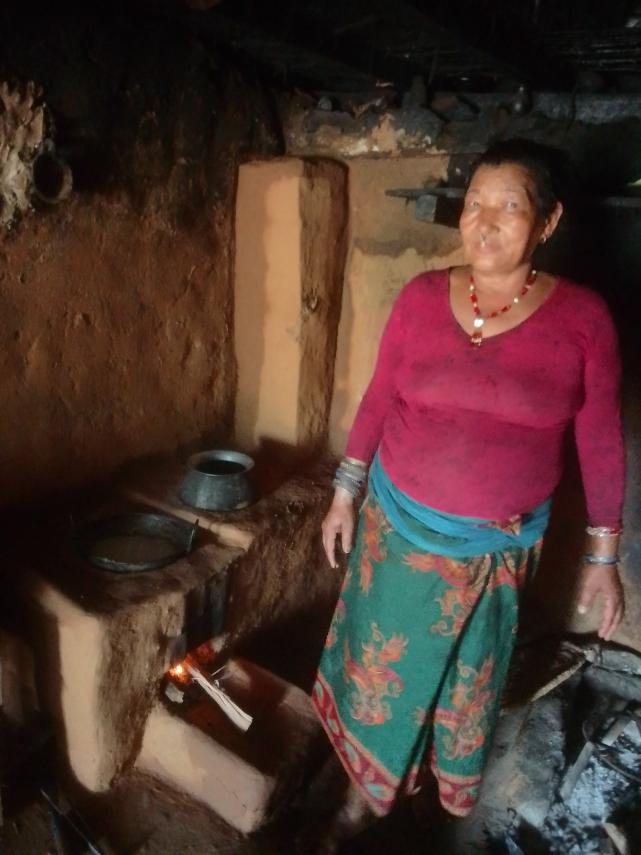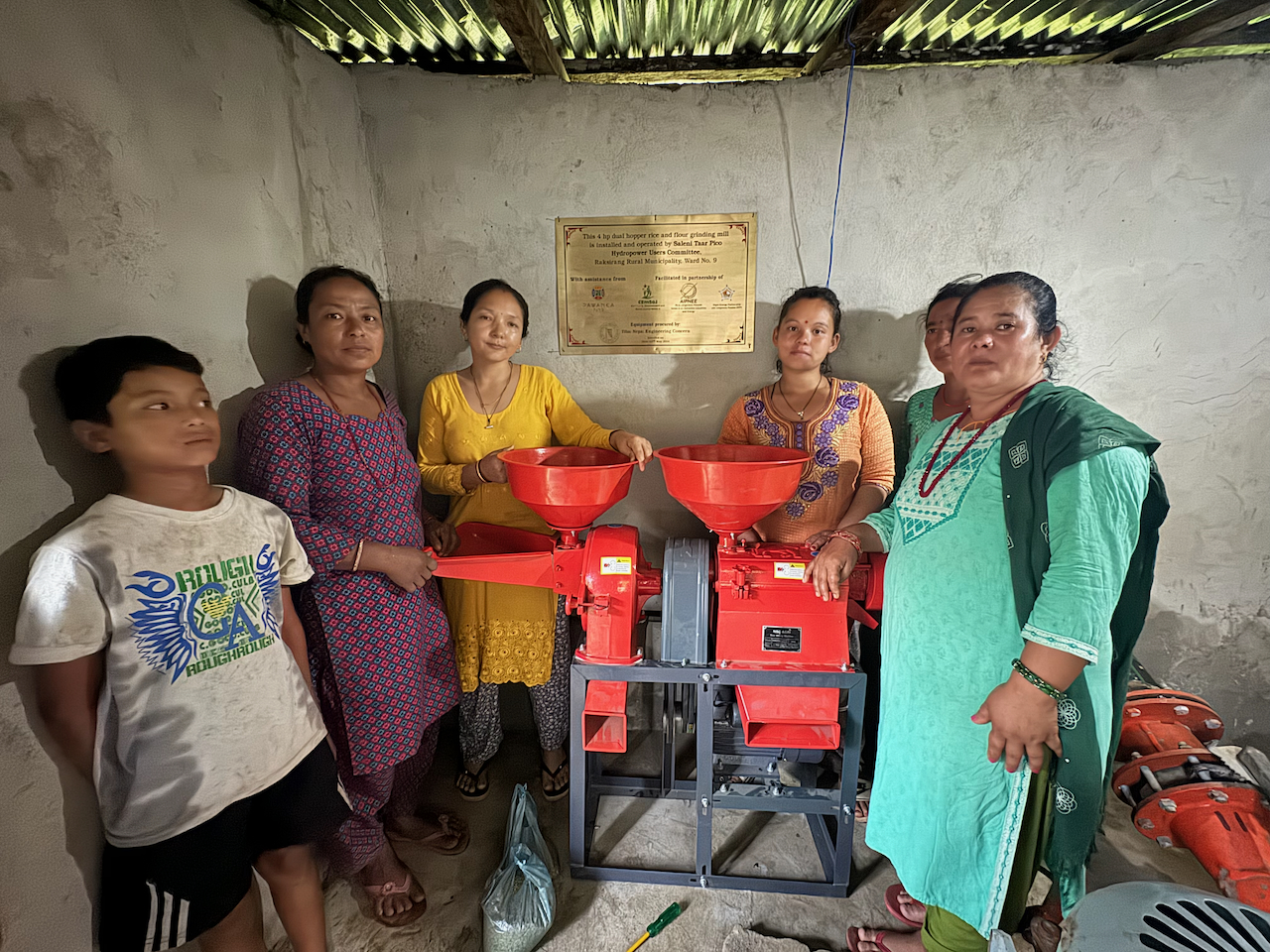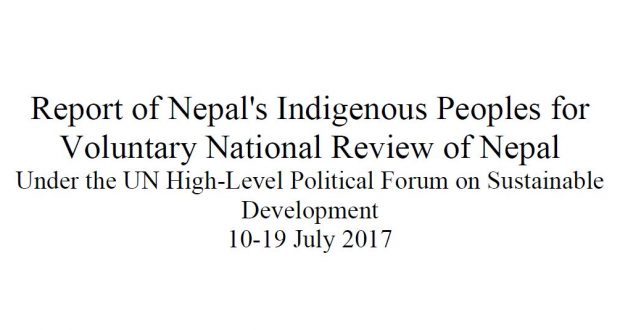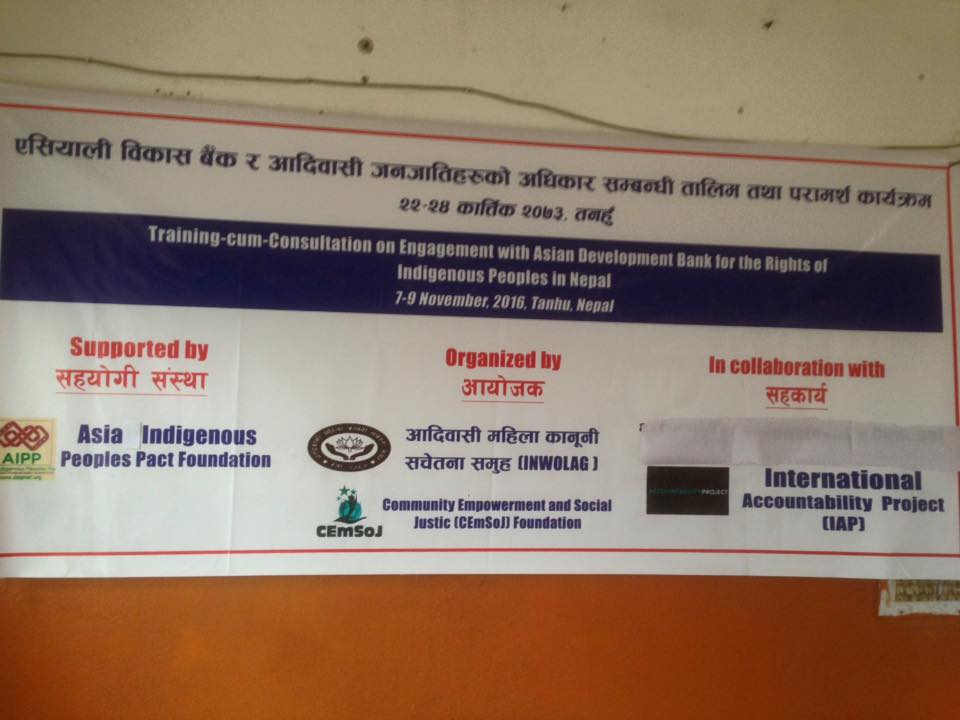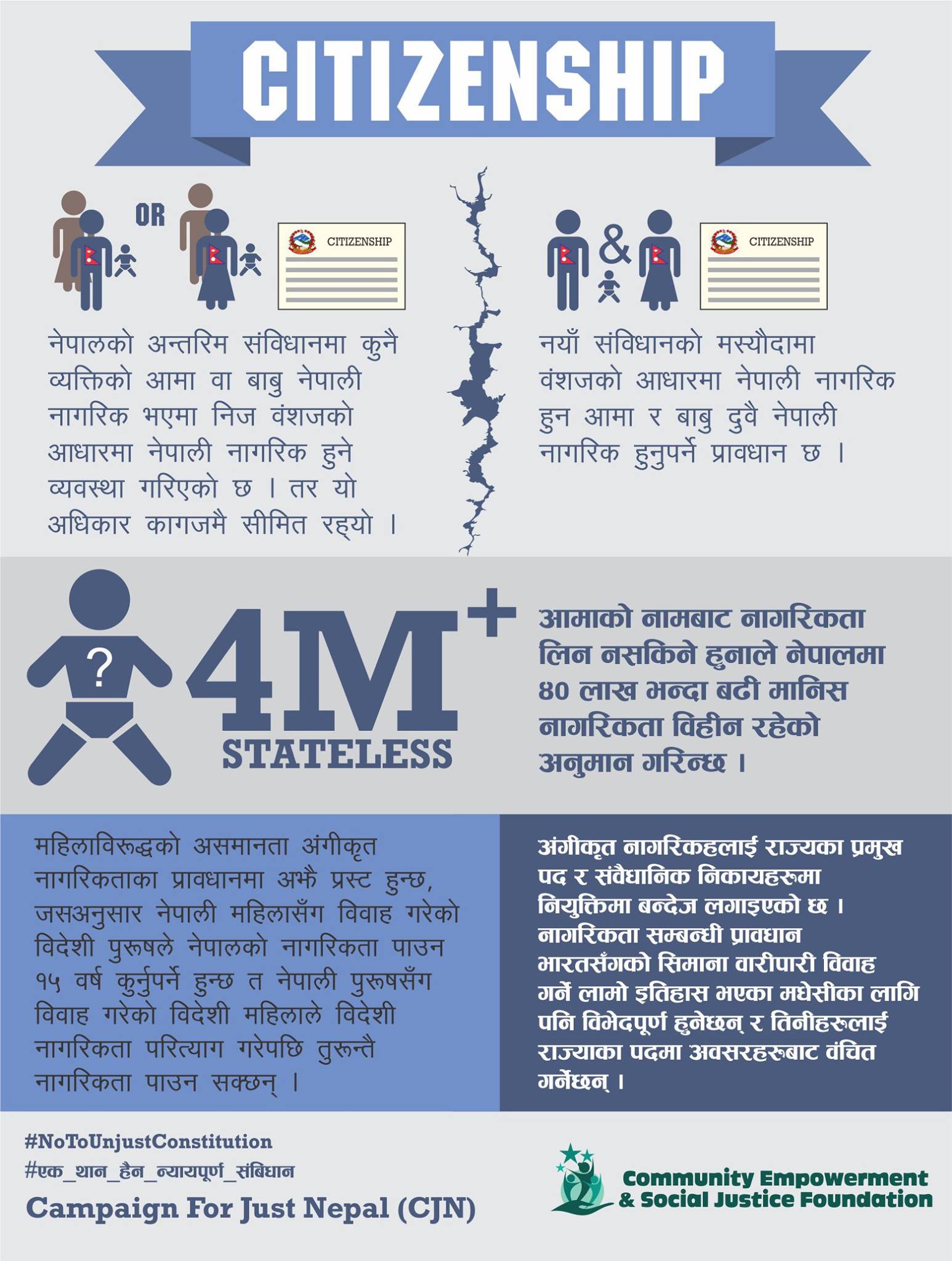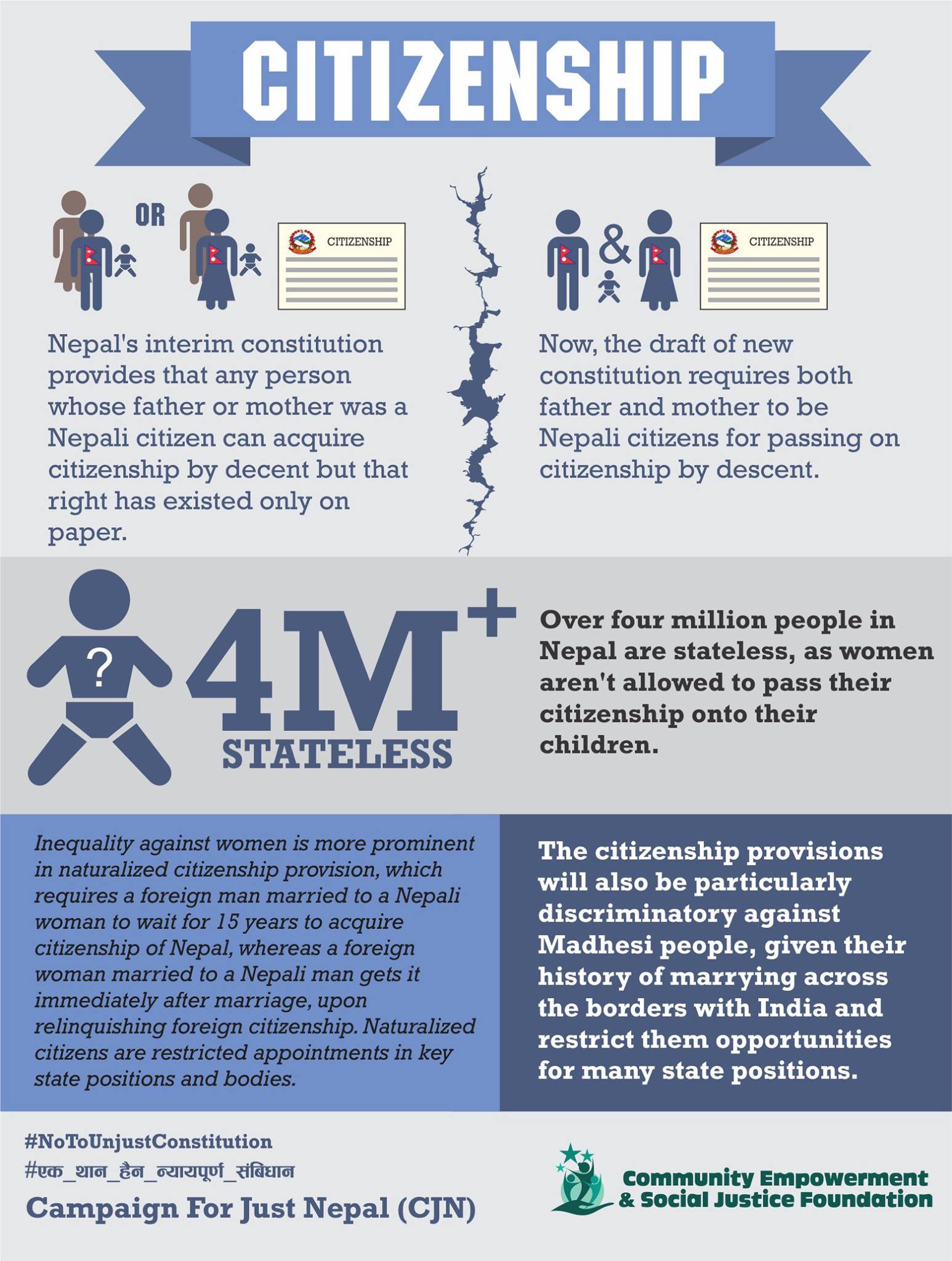On 25 May 2024, CEMSOJ provided a training on construction and maintenance of Improved Cooking Stove to Indigenous Tamangs and Chepangs of Chyaurang, Saleni Taar and Sukhel villages of Raksirang rural municipality in remote hills of Makawanpur district in southern Nepal. The Stoves are aimed to particularly benefit Indigenous women of the villages of Ward no. 9 of the rural municipality.
more “Improved Cooking Stoves training provided and construction undertaken at Chyaurang village in Makwanpur”Tag: women
Rice and flour grinding mill handed over for women’s empowerment at Saleni Taar of Raksirang, Makwanpur
On 23 May 2024, CEMSOJ handed over a 4 horsepower dual hopper rice and flour grinding mill to Saleni Taar Pico Hydropower Users Committee for installation at Saleni Taar of Raksirang Rural Municipality, Ward no. 9 in Makwanpur district in southern Nepal.
In response to the request of the Committee, the mill is specifically aimed for socio-economic empowerment of the Indigenous Tamang and Chepang women from among the beneficiary families of the 6 kW pico hydropower plant that CEMSOJ had supported the Committee to set up and operate since last year by using the electricity from the plant not used during the daytime. The Committee has gradually increased its users from 35 to 48 over the year.
more “Rice and flour grinding mill handed over for women’s empowerment at Saleni Taar of Raksirang, Makwanpur”Report of Nepal’s Indigenous Peoples for Voluntary National Review of Nepal Under the UN High-Level Political Forum on Sustainable Development
The report is prepared collectively by Indigenous Peoples’ Network for SDGs in Nepal to respond to the Voluntary National Review of Nepalese government under the UN High Level Political Forum on Sustainable Development, 10 – 19 July 2017. The report highlights progress of implementation of the SDGs in the country from the perspective of indigenous peoples. This includes challenges in SDGs implementation as well as recommendations from the network to the Nepalese government with regard to the realization of the SDGs. more “Report of Nepal’s Indigenous Peoples for Voluntary National Review of Nepal Under the UN High-Level Political Forum on Sustainable Development”
Training and Consultation on Engagement with Asian Development Bank (ADB) for the Rights of Indigenous Peoples in Nepal
A three-day Training and Consultation on Engagement with Asian Development Bank (ADB) for the Rights of Indigenous Peoples in Nepal was held in Tanahu, western Nepal from 7-9 November.
नेपालको नयाँ संविधानको मस्यौदाका नागरिकताका प्रावधानमा महिला र मधेसीविरुद्ध विभेद
नेपालको अन्तरिम संविधानमा कुनै व्यक्तिको आमा वा बाबु नेपाली नागरिक भएमा निज वंशजको आधारमा नेपाली नागरिक हुने व्यवस्था गरिएको छ । तर यो अधिकार कागजमै सीमित रह्यो ।
नयाँ संविधानको मस्यौदामा वंशजको आधारमा नेपाली नागरिक हुन आमा र बाबु दुवै नेपाली नागरिक हुनुपर्ने प्रावधान छ ।
आमाको नामबाट नागरिकता लिन नसकिने हुनाले नेपालमा ४० लाख भन्दा बढी मानिस नागरिकता विहीन रहेको अनुमान गरिन्छ ।
महिलाविरुद्धको असमानता अंगीकृत नागरिकताका प्रावधानमा अझै प्रस्ट हुन्छ, जसअनुसार नेपाली महिलासँग विवाह गरेको विदेशी पुरुषले नेपालको नागरिकता पाउन १५ वर्ष कुर्नुपर्ने हुन्छ त नेपाली पुरुषसँग विवाह गरेको विदेशी महिलाले विदेशी नागरिकता परित्याग गरेपछि तुरुन्तै नागरिकता पाउन सक्छन् । अंगीकृत नागरिकहलाई राज्यका प्रमुख पद र संवैधानिक निकायहरुमा नियुक्तिमा बन्देज लगाइएको छ ।
नागरिकता सम्बन्धी प्रावधान भारतसँगको सिमाना वारीपारी विवाह गर्ने लामो इतिहास भएका मधेसीका लागि पनि विभेदपूर्ण हुनेछन् र तिनीहरुलाई राज्याका पदमा अवसरहरुबाट वंचित गर्नेछन् ।
न्यायपूर्ण संविधानको लागि आवाज उठाऔं । न्यायपूर्ण #नेपाल अभियानमा (Campaign for Just #Nepal (#CJN) campaign4justnepal@gmail.com) सहभागी होऔं ।
Nepal’s new constitution draft discriminates against women & Madhesis in citizenship
Nepal’s interim constitution provides that any person whose father or mother was a Nepali citizen can acquire citizenship by decent but that right has existed only on paper.
Now, the draft of new constitution requires both father and mother to be Nepali citizens for passing on citizenship by descent.
Over four million people in Nepal are stateless, as women aren’t allowed to pass their citizenship onto their children.
Inequality against women is more prominent in naturalized citizenship provision, which requires a foreign man married to a Nepali woman to wait for 15 years to acquire citizenship of Nepal, whereas a foreign woman married to a Nepali man gets it immediately after marriage, upon relinquishing foreign citizenship. Naturalized citizens are restricted appointments in key state positions and bodies.
The citizenship provisions will also be particularly discriminatory against Madhesi people, given their history of marrying across the borders with India and restrict them opportunities for many state positions.
Say #NoToUnjustConstitution #एक_थान_हैन_न्यायपूर्ण_संबिधान
Join Campaign for Just Nepal (#CJN) campaign4justnepal@gmail.com
#OrNotAnd #CitizenshipThroughMothers #NepaliCitizensSayNo
